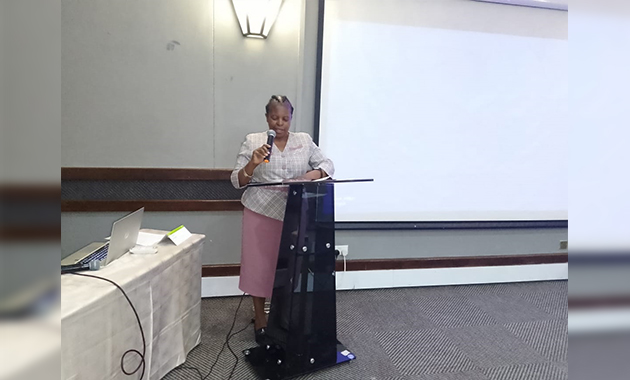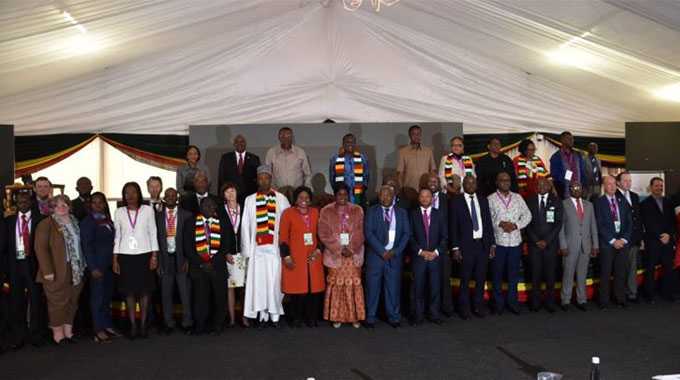Older generation cry out for help

Central Hospital with face in her hands clearly showing that she was in deep thought.
She had failed to buy two pints of blood for her pending operation. As every minute passed her hopes for the operation were fast disappearing. Her hopes of healing are fast hitting a brick wall because she cannot afford cost of blood.
She is neither employed nor receiving any form of direct assistance from pension schemes or Government. Mrs Dube has no other source of income, hence is unable to buy two pints of blood for her operation.
Coming from a poor background, she cannot afford to meet the hospital bill nor does she have relatives or children to assist her.
Mrs Dube’s situation is synonymous to what most old persons are going through in Zimbabwe. The majority of the challenges they are facing evolve around policy issues, a situation that needs to be urgently dealt with if the country is to do justice to its older generation.
Lack of policy, schemes or laws designed to protect older persons imply that there will be prolonged suffering of older people in Zimbabwe until policies, schemes and laws to protect them are instituted.
The situation is likely to be addressed when the older people’s Bill of Rights gets the nod of Parliament.
Last week, the Cabinet Committee on Legislation indicated that the Bill would be going to Parliament for discussion.
The Bill has already attracted lost of attention from older persons and hope the Bill sails through.
Mr Ralph Musutu (64) said he has heard of the Bill of Older Persons years before he retired from teaching. When the Bill was formulated in 2002, it brought about hope for the improvement of older people’s living standards.
He says: “We have been waiting for the Bill to be signed into law for years. All we are waiting for is a law that gives us the right to resources and not necessarily for food handouts but believe if the Government helps us, we will be able to help ourselves.”
The Bill of Older Persons sets out the rights and freedoms, which all people in Zimbabwe are entitled to. It builds on the idea that everyone is born with human rights and entitled to certain freedoms, which are clearly laid in the Constitution.
While it is acceptable that all vulnerable groups share common problems of marginalisation each group has specific problems, needing specific constitutional protection. People like Musutu have, among other human rights, a right to health and equal access to it like any other citizen
Zimbabwe became the first country to work towards developing a policy for older persons by formulating a Bill known as the Bill for Older Persons in 2002. Eight years down the line the Bill has not been signed into law.
Of interest, however, is the number of Bills that were enacted into law since 2002, all meant to uphold the rights of the downtrodden such as the Domestic Violence Bill formulated in 2004.
Issues that affect older persons have been raised at various fora and as such a number of policies and agreements have been devised by the African Union, United Nations and at Sadc in an effort to improve the living standards of older persons throughout the world.
Commitment by member states and governments to the United Nations dates back to 1948 when the declarations of Human Rights were made to 2008 when an African Union Social Policy Framework was made.
Zimbabwe is in line with UN, which is currently looking at the adequacy of the existing international human rights framework, identifying any gaps and considering the possibility of new human rights instruments.
Some of the declarations made at various fora are as follows:
In 1991, the United Nations drafted the following five principles for older persons, dignity, independence, self-fulfillment, participation and care.
Adding to the human rights set out in the human rights charter, these principles add life to the years that have been added to life.
They give direction to programming efforts by organisations intending to support older persons and they also give policy direction for Government and other stakeholders as they intend to meet the needs of senior citizens.
However, human rights, particularly rights entitled to older persons, become more meaningful when they are enshrined in domestic legislation and translated into policies, with resources allocated to delivery of services associated with them.
It is therefore the duty of the Government to develop and implement policies that seek to provide direct income support to address the financial needs of older carers of orphans and vulnerable children.
It is also the duty of the state to ensure that policies and programmes designed to meet the health needs of families affected by HIV and Aids include older persons, orphans and vulnerable children.
The country already has a sound footing in the achieving rights for older people as they have always got respect from the society.
The respect is, however, being eroded by the harsh economic climate that Zimbabwe has been experiencing.
Sekuru Wilson Makiwa says it was unfortunate that the respect was not cascading to allocation of resources from central Government.
“I acknowledge the respect that we are getting in bank queues and other service provision but we need resourcing, as this is our major challenge.
“With most pension schemes giving us nothing at the end of the month, there is no way the older persons can survive without Government help,” he said.
Mr Makiwa said the HIV pandemic coupled with the general lack of support from children was making their lives difficult.
l Conrad Gweru is an Advocacy Officer with HelpAge Zimbabwe






Comments